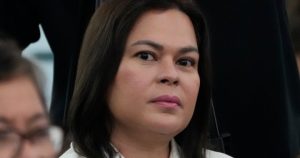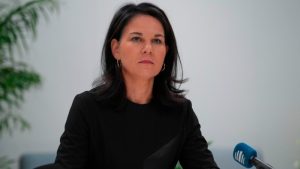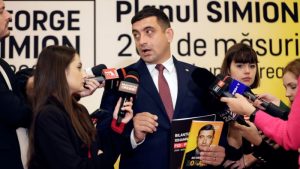Former general Prabowo to take helm in Indonesia
Former military general Prabowo Subianto is set to be inaugurated as Indonesia’s president with ambitious plans to boost growth while claiming a bigger international role for south-east Asia’s largest economy.
Prabowo, 73, will take over the reins from Joko Widodo eight months after a landslide victory in February’s presidential election. Gibran Rakabuming Raka, his predecessor’s eldest son, will also be sworn in as his deputy.
The inauguration caps a remarkable turnaround for Prabowo, a former commander of the country’s feared special forces who was dismissed from the military and once banned by the US for the alleged kidnapping of democracy activists. Prabowo has always denied the accusations.
The former general won over millions of Indonesians with the backing of the highly popular Widodo, and by promising policy continuity as well as free school lunches, a massive programme expected to cost $28bn. He has also vowed to boost economic growth to 8 per cent a year, up from the 5 per cent rate that Indonesia has maintained for more than a decade.
But Prabowo has already indicated a departure from his predecessor in everything from government spending to foreign policy. He is open to taking on more debt to fund social assistance programmes and plans to expand the cabinet by a third to accommodate political allies.
He also wants Indonesia to play a more active role internationally. Widodo shunned international events. In his 10 years in power, he never attended the annual UN General Assembly in New York in person. Prabowo, on the other hand, has made more than a dozen international trips between the election and inauguration day.
“The most significant break of Prabowo’s policies from his predecessor would be on the focus of its foreign policies,” said Kennedy Muslim, a political analyst at Indikator Politik Indonesia. “While Jokowi single-mindedly focused his pragmatic foreign diplomacy on attracting business investments from abroad, Prabowo’s are more strategic in nature since he’s by nature much more interested in geopolitics than his predecessor.”
Prabowo will maintain Indonesia’s historically neutral foreign policy stance but will seek to play a bigger role and increase engagement in global issues. As defence minister in Widodo’s government, Prabowo last year proposed a demilitarised zone and a UN referendum to end the conflict between Ukraine and Russia, a plan that was rejected by Ukraine. This year, Prabowo said Indonesia was willing to send peacekeeping forces to Gaza.
His first overseas trip since winning the election was to China, where he met with Xi Jinping. Beijing is Indonesia’s largest trading partner and the second-biggest source of foreign direct investment, putting money into economically significant industries such as metals, mining and infrastructure. Prabowo has also met Russian President Vladimir Putin and leaders of Japan, France and south-east Asian neighbours.
At home, social assistance programs are a priority. While Widodo focused on building roads, ports and other infrastructure, Prabowo wants to ensure food and energy security, eradicate poverty and provide free meals and health check-ups.
“One of his immediate priorities is to tackle the social aspect of his agenda,” said Brian Lee, an analyst with Maybank. “Jokowi was about hard infrastructure. Prabowo is looking at initiatives that don’t just target the national economy as a whole but also target the households.”
However, Prabowo will also have to attract investment to meet his growth targets. “Eight per cent is going to be very difficult,” said Lee. “He needs to basically attract a lot more investment, both domestic and foreign direct investment.”
Prabowo takes over an economy that has transformed during Widodo’s 10 years in power into a central player in the global energy transition effort, thanks to Indonesia’s vast nickel reserves. Still, GDP growth has failed to meet Widodo’s initial target of 7 per cent.
Widodo has also eased rules to attract foreign investors, with metals and mining in particular drawing in record funds. While Prabowo has said he would be investor-friendly, he is yet to lay out detailed plans.
One of Prabowo’s economic advisers told the Financial Times that focus on minerals processing alone would not be enough to reach the GDP target. “We need new engines of growth,” he said, pointing to the digital sector, the energy transition and higher-quality manufacturing as possible growth areas.
Fiscally, Prabowo is planning to be a lot more liberal than Widodo, primarily to fund his social assistance programs. His brother and close adviser, Hashim Djojohadikusumo, has said Prabowo plans to increase the country’s debt-to-GDP ratio to 50 per cent from the current 39 per cent. To support higher debt, Prabowo hopes to increase tax revenue and sell state assets.
While Indonesia’s debt levels are lower than regional peers’, economists warn a sharp rise in borrowings over the short term could affect the currency, risk Indonesia’s credit rating and have a ripple effect on the economy.
Prabowo’s team has reassured investors of their fiscal caution in recent months, but concerns remain. “Potential fiscal strains could grow over time as [Prabowo’s] new programmes burgeon,” Citi’s chief Indonesia economist Helmi Arman said in a recent research note. He also expressed concerns that Prabowo’s key programmes appeared to be domestic market-oriented and not on exports.
Prabowo will also have to deftly handle his political allies, most importantly his former rival Widodo. Analysts said the former president had for months been trying to retain influence to protect his legacy.
“Prabowo knows that people still love Jokowi . . . however, Prabowo wants to control power in his own hands without any interference from Jokowi,” said Arya Fernandes, a political analyst at the Jakarta-based Centre for Strategic and International Studies, adding that Widodo could be given an advisory role.
Several of Widodo’s ministers are expected to get positions in Prabowo’s government. One indication of the outgoing president’s influence could be how big a role his son Gibran gets as vice-president, traditionally not a prominent position.
Prabowo also plans to install a bigger government, expanding the cabinet from 34 to up to 46, adding to worries over fiscal spending. His advisers have said the bigger government is primarily to appease partners in the ruling coalition.
Trade-offs are inevitable, said Indikator Politik’s Muslim, not least “between political stability and internal cohesion, as well as ruling effectiveness within his big-tent coalition”.
#general #Prabowo #helm #Indonesia






